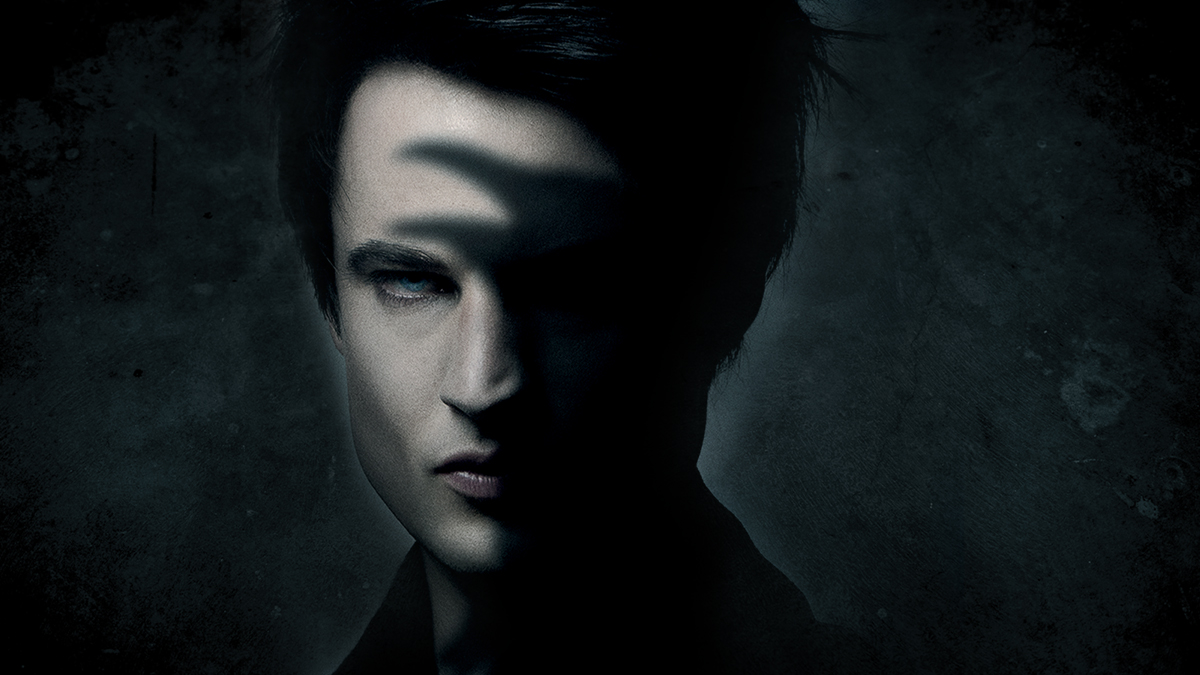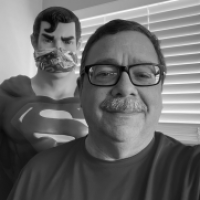The Sandman: What Becoming the Lord of Dreams Was Like for Tom Sturridge
Tom Sturridge becomes Morpheus, Lord of the Dreaming, in Netflix's adaptation of Neil Gaiman's The Sandman.

This article is presented by: 
The Sandman is arguably the most beloved comic book series of the 1990s, so you can imagine the expectations that come with adapting Neil Gaiman’s masterpiece for a new generation of fans in 2022. To be sure, the series, which is set across time and space, and through multiple realms of reality (including Hell), was once thought unfilmable as a movie. So Netflix and Gaimain wisely opted for a streaming series instead, with an anthology format that allowed them to more easily explore this universe’s sheer breadth of characters and worlds, while also weaving a cohesive narrative throughline that involves protagonist Dream’s many adventures with Death, Desire, and even Lucifer.
And the person tasked with bringing this Dream to life? That would be Tony-nominated actor Tom Sturridge, who looks every bit the part in the show’s trailer. But looking like the Lord of Dreams and actually personifying the character — and the many stages of evolution that await him on his long journey — are two very different things.
Den of Geek caught up with Sturridge, who described to us what it was like stepping into the Dreaming for The Sandman…
Den of Geek: What appealed to you about the material?
Tom Sturridge: For me, The Dreaming is Middle-earth, Narnia, our favorite parts of Hogwarts—everything that I’ve cared about in fantasy and literature rolled into one. And just to have the opportunity to step into that world as fully realized as possible, it was thrilling. As far as the character itself, it’s difficult to say. I suppose it was a fear. I was afraid of doing it because I was aware of how beloved Morpheus is and also how much I loved him.
The pressure must be daunting?
It is daunting, and it comes with an enormous responsibility. But the small comfort I took is that as it got into my blood and as I began to become aware of the responsibility, I started to also realize that, actually, one of the key components of Morpheus as a character is the burden of his own responsibility. It’s the responsibility he has for the subconscious of the universe, which is, I suppose, like the responsibility you have for the dreams of fans. It’s not quite the same as the universe, but it’s still a way to start thinking about how he feels about the world.
How does Morpheus change?
Well, I think by necessity, he’s kept himself at a distance from humanity and human beings because I think when you are responsible for anything, you try to separate yourself from it so you can have an overview. It’s like a bodyguard—you don’t fall in love with the client. And the thing that happens very early on in our story is that he is imprisoned, and for the first time in his life or in his existence, his power is taken away from him. His tools of office are stolen from him, and he is suddenly, bizarrely, quite close to human because he doesn’t have any of the powers that he’s had before, and he’s vulnerable.
That instantly changes the way that he perceives the world. The first half of our story is mainly based around his quest for his tools that have been stolen from him. And during that quest, for the first time in his existence, he has to ask for the help of human beings. I think that creates relationships that he’s never had before. He’s one of those smarter guys on the block, so when you have those relationships, you learn things, and by learning, you change.
Once he gains those powers back, does it become a balancing act?
Absolutely. And I think that’s why the episode “The Sound of Her Wings,” with his sister [Death], is so important because that is the moment where he examines that balancing act and is trying to figure out who this new version of himself is. He has restored himself to the power he once had, but he has been through this extraordinary experience and therefore is different. I think what’s beautiful about the relationship he has with his sister is that it’s unlike other ones that you have experienced so far in the story. They’re equals. I think the way she educates him is that if you bear witness to this simple experience of human existence, you can feel something. I think that really changes everything for him.
And his relationship with Desire?
That is a tough one. And it’s one that is, on the surface, incredibly antagonistic. Neil never liked the Endless to be described as gods because he says that God has to be believed in, whereas the Endless, they still exist whether you believe in them or not. But what could be disengaging about a story about them is that they’re not like us, yet beyond everything, this is a story of a very traditional family in which siblings don’t get on with each other.
What are your overall thoughts on Neil Gaiman’s Sandman universe?
It’s stupefying; it’s like you can’t really hold it all together in your head. I think what I find beautiful about it is when he began, he had no idea what it would become on a storytelling level, but mainly on the way that it would be received by the world. And so I think when you have that kind of youthful naïvety when you start something, and it’s just this tiny little egg, then it really grows organically. That’s why it’s so complex, so diverse, so enormous because it really started as a seed, and he had no idea how it was going to grow.
Do you think future experiences might pale in comparison?
I mean, I would be surprised if ever again, in my life, I’m standing at the gates of hell talking to a raven.
The Sandman releases on Netflix on Aug. 5.
